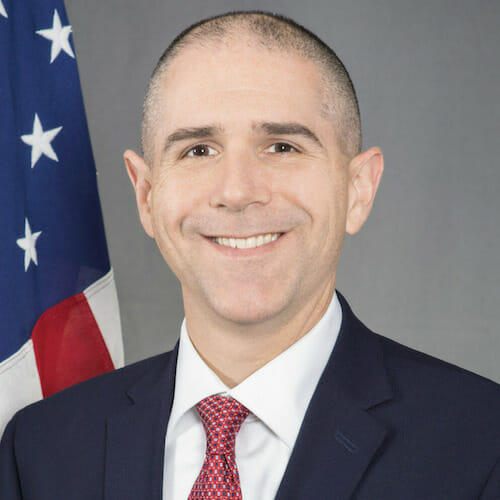
WASHINGTON, DC—Efforts to use immigration reform to address workforce shortages are nothing new, but senior living providers and advocates might want to consider some creative solutions by leveraging existing immigration laws.
That’s according to Carl Risch, a partner with Mayer Brown LLP in Washington, DC, who on Monday during Argentum’s Public Policy Institute addressed a variety of options that operators can focus efforts on in immigration reform.
With an alphabet soup of visa categories tied around temporary workers, Risch said, lobbying Congress on a specific visa category for senior living will result in “too little, too late.” Although the tactic might result in a few thousand visas a year, it likely will come with complex requirements that are not particularly helpful for senior living providers, he said.
Instead, Risch recommends pressing lawmakers to expand existing pathways that could result in tens of thousands — if not hundreds of thousands — of people coming into the United States to mitigate workforce shortages.
“Existing immigration regulations do not provide a clear pathway for admitting prospective direct care workers as nonimmigrants, nor as immigrants,” said Risch, the country’s former assistant secretary of state for consular affairs.
“However, recent immigration reform has created a population of tens of thousands of foreign-born potential workers who are already in the United States, or will be authorized to travel to the United States with employment authorization.”
Partnering for workforce
Specifically, Risch talked about the Biden administration’s new approach to the use of certain executive powers to expand existing refugee and asylee programs — in which individuals already are in the country legally and authorized to pursue employment — as well as parole programs.
To connect with those potential workers, Risch recommended that operators partner with organizations that have developed humanitarian programs to connect those individuals with employers, such as Tent Partnership for Refugees and the US Office of Refugee Resettlement.
Argentum is working with Tent — more than 300 large multinational companies committed to training and integrating refugees into the workforce, and helping companies build effective refugee hiring programs — to provide a briefing for members this spring on how to access those workers.
Another option is the Humanitarian Parole program, which began with the Afghan crisis two years ago. Parolees are admitted for up to two years and are eligible to apply for employment authorization. Since its launch, the program has expanded to include refugees from Cuba, Haiti, Nicaragua, Venezuela and Ukraine.
Risch said that the Biden administration, in one year, has “blown wide open” immigration possibilities.
In its current form, the parole program is built around private sponsorship, with individuals sponsoring a refugee. The program allows people to bypass traditional immigration routes and use private sponsorship as a way to help parolees come to the US.
Risch suggested that organizations such as Argentum could use their persuasive power to ask the government to reconsider personal sponsorship and allow business sponsorships to create another mechanism for addressing the workforce crisis.
“Essentially, this is the use of executive authority to create a massive migration program in the US,” Risch said. “For employers looking for employees, understanding these programs, understanding how they work, understanding how to access these employees as they come in — tens of thousands a month that were not coming before — I believe, is the best investment of time and resources right now, at this time and place in history, to try to address any crisis around not have enough workers to work for a company.”
‘Shared burden’ can make the temporary permanent
What’s important, Risch said, is advocacy to solicit supportive members of Congress to trigger a response from the State Department. The “shared burden” is the way to help move temporary programs to permanent solutions, he said.
“That’s essential to reforming the system, changing it or causing it to evolve,” Risch said.
Sen. Thom Tillis (R-NC) said the industry needs consensus around a “balanced” immigration proposal — recognize the border crisis in discussions about workforce needs. He said without that, nothing will come through.
Argentum Senior Vice President of Public Policy Maggie Elehwany said that Argentum is going to ask Congress for “commonsense” immigration reform.
“It’s going to be a long, tough road,” she said. “We’re looking at all solutions. We’ve got a huge workforce challenge — a 20 million workforce shortage in the very near future. We’re going to have to investigate everything.”




